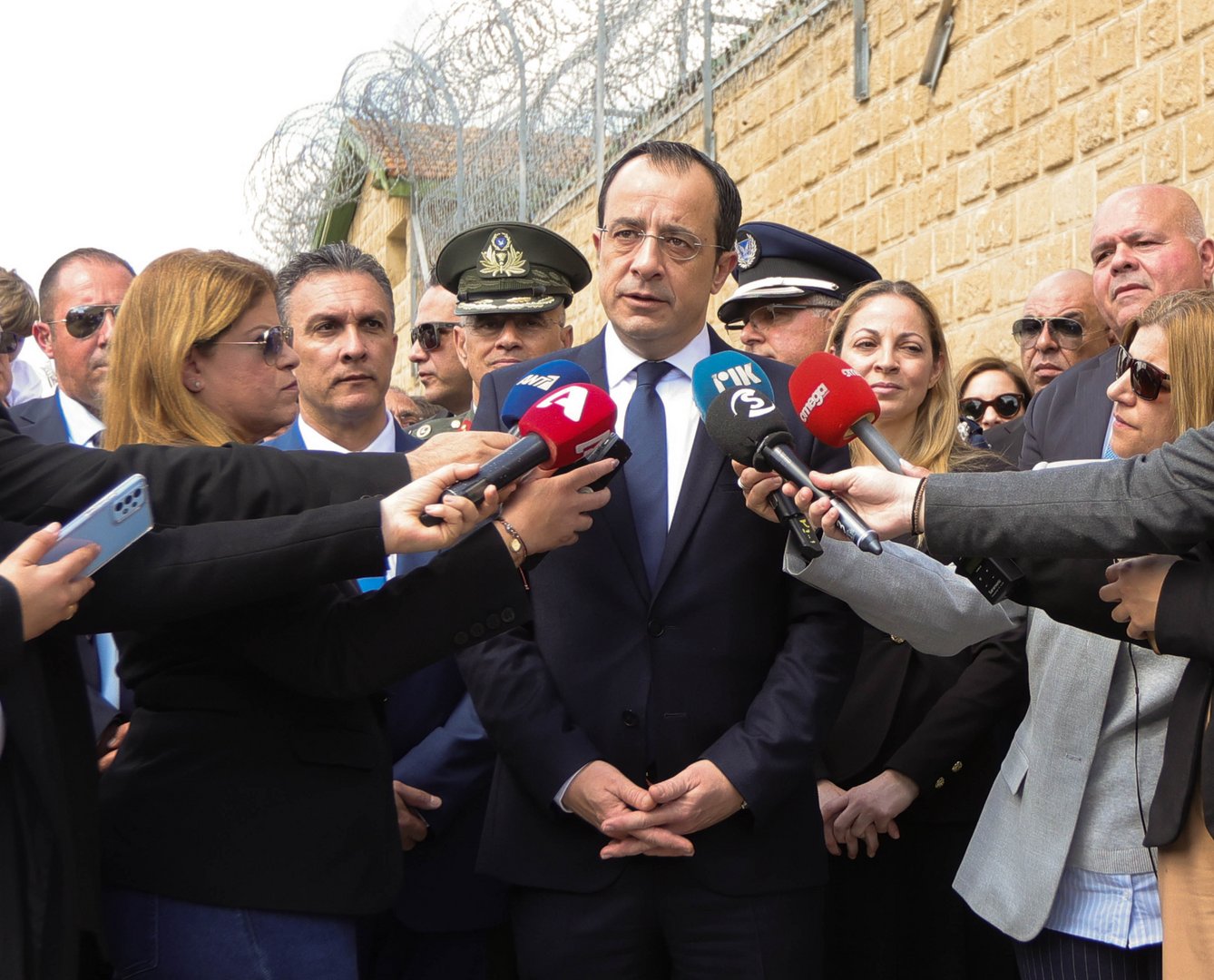Disy deputies may have been caught by surprise at the House institutions committee on being informed that their law proposal on election campaign funding was already covered by the existing law on the issue. The bill would oblige a candidate to list the name of each individual, who made a donation of more than €500 to the campaign.
The bill may have been the party’s way of making an issue out of President Nikos Christodoulides’ failure to give the names of any of his donors in the campaign accounts he submitted to the election service. His campaign’s accounts just gave figures for the total revenue and the total spending, whereas other candidates gave a breakdown of the money contributions they received and named each donor.
Deputies at the committee were informed that the law governing the parliamentary election campaign funding also applied to the presidential elections. The head of the election service Menelaos Vassiliou, explained that under the existing law, the representative of a candidate was obliged to make public a detailed report of revenue and expenditure, including individual donations, before submitting the report to the chief returning officer.
Next day, Thursday, Phileleftheros referred to it as a “possible illegality on the part of the president with regard to his obligations in relation to his election campaign.” The violation of the law is punished by a €500 fine plus €50 for every day of non-compliance. Considering the deadline for the submission of accounts was April 11, President Christodoulides, or his election campaign manager, should have been liable to a fine in excess of €1000 so far. The president of the republic, however, is considered untouchable by our institutions, despite the rule of law.
Later, the same day, Christodoulides did what he was obliged by law to do and released the names of all the contributors to his campaign as well as the amount each one gave. Political and media pressure, rather than state institutions ensured the law was respected. It does not reflect well on the president, who must set an example in such matters, that he tried to wriggle out of his legal obligation, aware that no state institution would come after him.
This reflects even worse on our state institutions, which have proved that they do not treat all citizens as equals, viewing the president as being above the law. Unheard of in properly functioning democratic countries with rule of law, but in Cyprus, ever since the time of Makarios, the president of the republic does whatever he wants, safe in the knowledge that no state institutions would call him to account.
Christodoulides showed himself to be no different in this regard, complying with the election law, only when he came under public pressure. In this respect, he was merely following the example of his predecessors, but particularly Nicos Anastasiades, who had fully exploited the subjugation of all state institutions to the president, to remain untouchable throughout his ten-year presidency. Even the supposedly uncompromising auditor-general showed deference to the president, whenever he was called to investigate allegations against Anastasiades. All his investigations exonerated the president – even his use of the private jet belonging to a Saudi man, who was subsequently granted citizenships for himself and extended family. The auditor-general finally took a stand on the golden passports, when Anastasiades was on the way out.
Part of the problem is that the president appoints all state officials with the result that these officials show loyalty to the president rather than the institution they are paid to serve. It is the president who will renew their term which is why they end up serving him. If they do not show complete deference and loyalty to the head of state, they will be removed from the highly paid post when their term is over. For example, the central bank governor, has avoided taking a public stand against the finance minister’s meddling in the ECB’s monetary policy by pressuring banks to lower interest rates, presumably because his term is up for renewal.
Even the independent state officials, who are in the post until retirement age, like the attorney-general, have shown an excessive degree of deference to Anastasiades. Large chunks of the findings of the Nikolatos inquiry of the citizenship scheme, for example, were redacted by the attorney-general, not because this was in the public interest, as had been claimed, but because this would have suited the president at the time.
All this stems from the excessive powers, bordering on dictatorial, enjoyed by the president of the republic. Our institutions have the authority to exercise some control over the president and ensure there is an element of accountability, but they all seem to shy away from this responsibility. They have proved over the years that citizens cannot rely on them to perform this role. In the end, the only way to ensure there is a degree of presidential accountability is through public pressure. It worked in the case of president Christodoulides’ election campaign finances.







Click here to change your cookie preferences